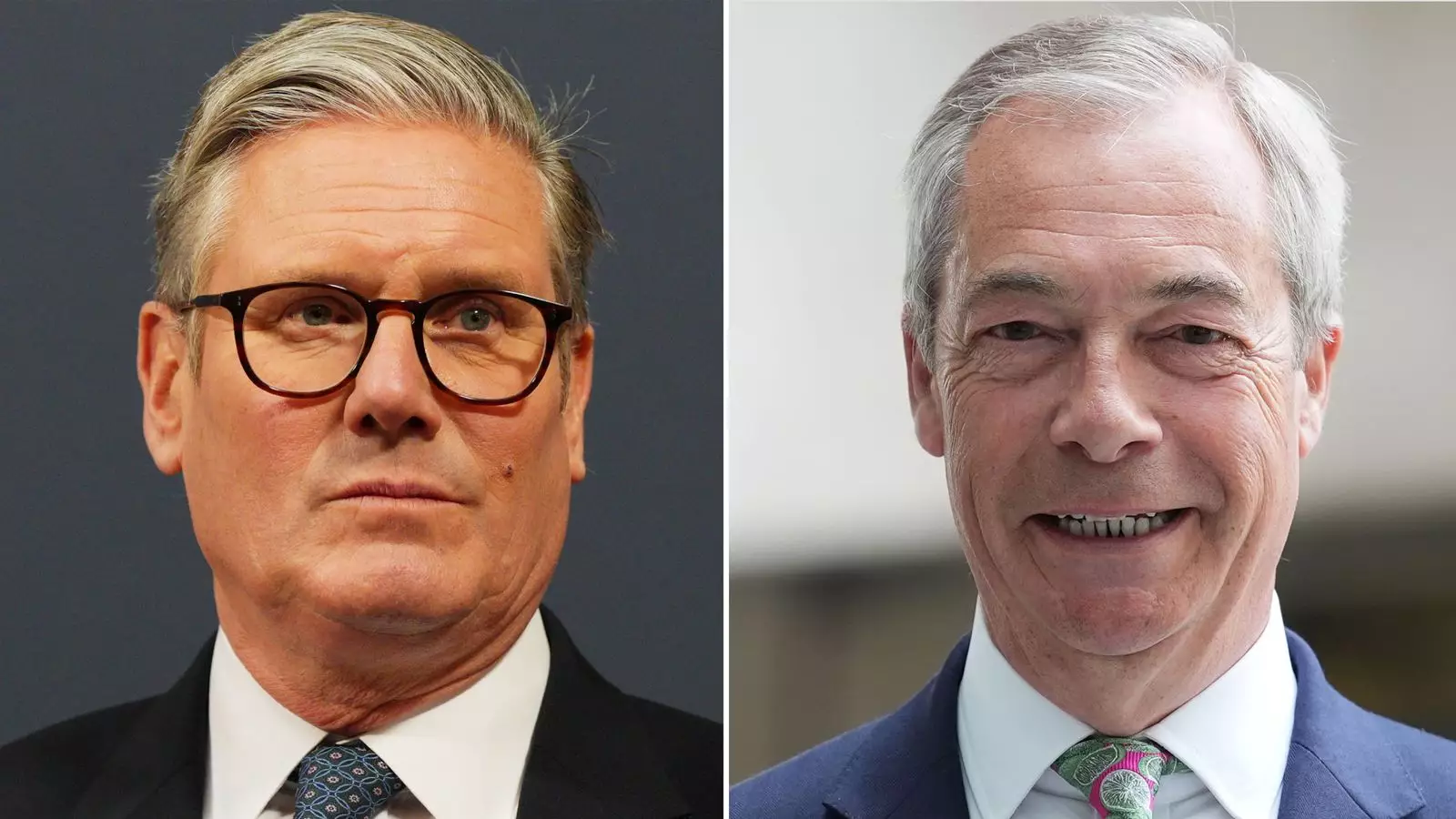In the current political climate, one can’t help but feel a sense of déjà vu as Nigel Farage’s financial propositions emerge, reminiscent of Liz Truss’s ill-fated economic strategy. Farage’s recent declarations demand immediate scrutiny, not just for their populist appeal but for the potentially catastrophic impact they could have on the average citizen’s wallet. Farage, leading Reform UK, is positioning himself as a champion of the everyman by pledging to undo cuts to winter fuel payments and eliminate the two-child benefit cap, while simultaneously proposing sweeping income tax reductions. However, these moves, bold as they may sound, come with a heavy price tag—one that responsible policymakers must consider.
An Economic Mirage: The Cost of Farage’s Proposals
The Institute of Fiscal Studies has shed light on Just how staggering the costs associated with Farage’s promises could be, estimating that hiking the personal tax allowance to an eye-watering £20,000 could deplete public finances by as much as £80 billion annually. This reckless gamble on colossal tax reductions raises a critical question: where exactly will this money come from? Farage’s attempts to balance the books by scrapping net-zero commitments and reducing support for asylum seekers reveal a troubling tendency towards prioritizing political gains over sustainable solutions. Such short-sighted thinking not only threatens to unravel progress made towards climate commitments but also fuels an exclusionary narrative around vulnerable populations.
A Repetition of Past Mistakes
Sir Keir Starmer’s warning about the dangers lurking within Farage’s economic blueprint is no mere political posturing; it’s a valid concern grounded in historical precedent. The lessons of Liz Truss’s disastrous mini-budget, which sent shockwaves through financial markets and resulted in a spiraling cost of government borrowing, should not be forgotten. What’s particularly alarming is the way Farage appears willing to trivialize the financial burden on families for the sake of a political experiment. His cavalier attitude towards budgeting echoes the same fate that befell Truss: a dramatic shift to uncertainty marked by soaring interest rates and skyrocketing mortgage repayments.
The Fragility of Popular Support
Farage’s recent gains in local elections and parliamentary by-elections illustrate the volatile nature of public sentiment and how quickly political fortunes can shift. His exploits have certainly resonated with segments of the population, as evidenced by recent polls placing Reform UK ahead of Labour. But the question remains whether this support is built on an understanding of the dire implications his policies will have or purely on a desire for change. Sir Keir’s political strategy will need to navigate these turbulent waters while working to reclaim lost ground for Labour. The challenge now is to provide a credible alternative that showcases the dangers of Farage’s fiscal fantasies while simultaneously daring to address the concerns that led to his rise.
Playing with Fire: The Broader Implications
The comparison drawn between Farage’s financial strategy and that of Liz Truss is not intimate to political rivalry but extends to the very foundations of economic stability in the UK. Each new policy introduced by Farage threatens to put family finances, housing security, and basic services at risk. The gamble is nothing short of reckless when resorted to as a bargaining chip in a political game. By prioritizing tax cuts without a clear financial framework, Farage could very well turn the lives of many into collateral damage for his ambition. This is particularly upsetting in the context of rising costs of living where families are already stretched thin.
As Farage’s narrative gains traction, it’s crucial for those in political power to engage directly with the reality of fiscal prudence. Avoiding Truss-like outcomes must be at the forefront of Labour’s strategy as they seek to tackle an increasingly difficult political landscape. The stakes couldn’t be higher, and the responsibility to protect our collective economic future lies not just with the government, but with every voter who recognizes that grand promises without sound strategy can lead to disastrous consequences.



Leave a Reply